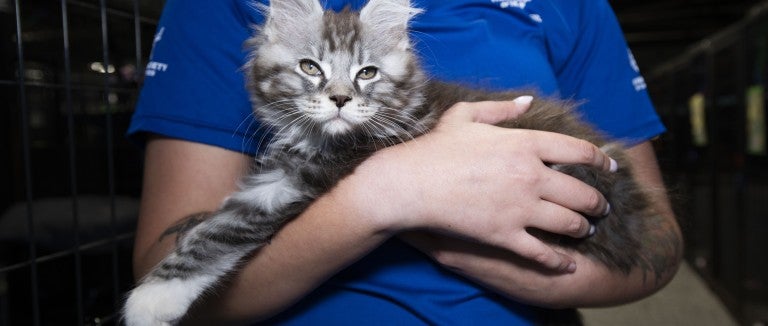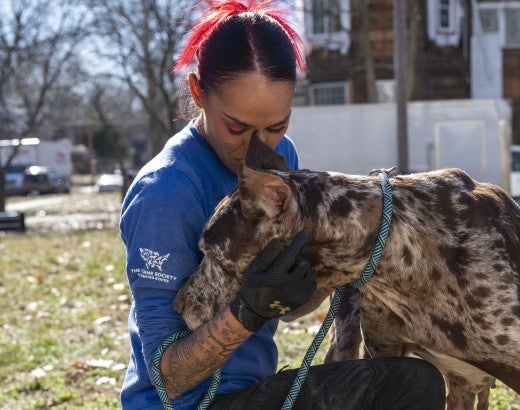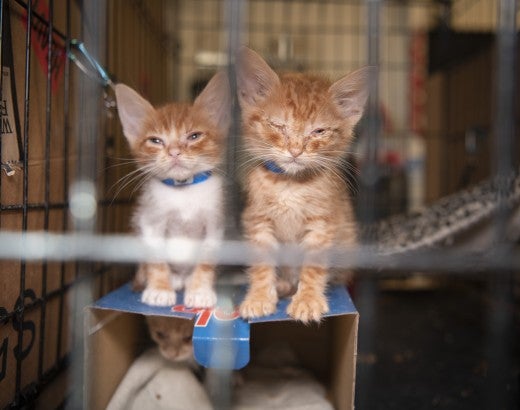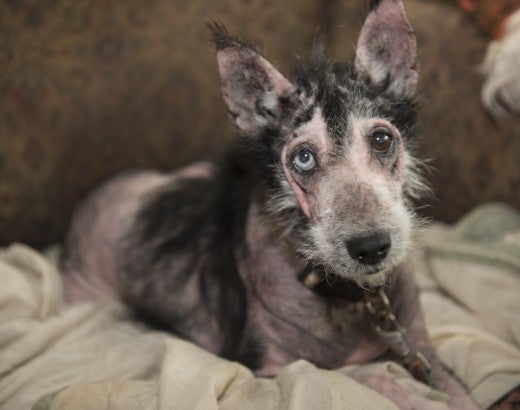Last week, in Chesterfield County, Virginia, local authorities arrived at a residence to serve a search and seizure warrant. Our Animal Rescue Team was on the scene to help the Virginia Attorney General’s Office and Chesterfield County Animal Services rescue cats and kittens from a large-scale alleged cruelty situation.
Our team found a total of 110 Maine Coon-type cats and kittens on the property and worked quickly to transport them to an undisclosed location to receive in-depth veterinary exams and treatment.
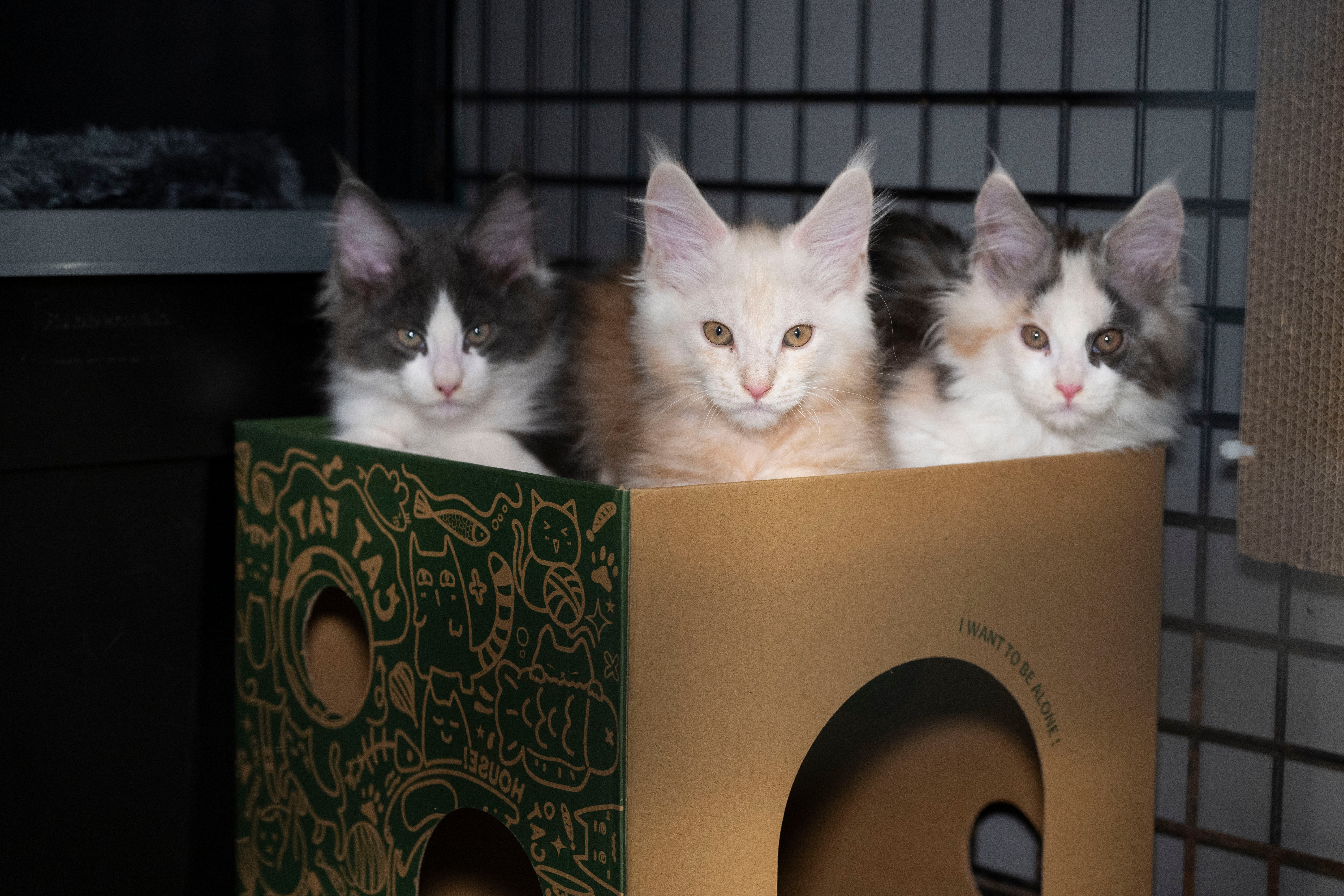
The seizure of the cats comes as a result of an investigation of animal cruelty under Virginia law. But there is also federal action, as the U.S. Department of Justice has filed a case in federal court because of alleged violations of the Animal Welfare Act. In August, the U.S. Department of Agriculture suspended the commercial breeding operation’s license.
Help animals in puppy mills, roadside zoos and labs!
This is also an instance in which our Animal Rescue Team has had the honor of helping to save animals from a breeder previously included in a Horrible Hundred report, our annual exposé of problematic commercial breeders across the U.S.
Federal inspectors from the USDA have documented more than 50 Animal Welfare Act violations at the facility since March 2023, including serious ones such as failure to provide proper veterinary care, the housing of incompatible cats together and keeping animals in too-small enclosures that did not meet the minimum requirements set by the Animal Welfare Act.

One violation on the records tells the story of a kitten found during a July 2023 inspection. He had a malformed chest that was compressed inward, reducing the space for his heart and lungs. According to USDA inspectors, instead of alerting a veterinarian, the owner attempted to treat the kitten by using a toilet paper tube as a makeshift splint. According to a federal court filing in the U.S. District Court for the Eastern District of Virginia, when inspectors returned on Aug. 9, the kitten showed respiratory distress, had diarrhea sticking to the fur of his hind legs and was quite thin. Even though the breeder admitted to being aware of the kitten’s poor condition, he still had not arranged for veterinary examination. USDA inspectors directed him to seek immediate veterinary care. They learned from the breeder’s veterinarian that the kitten had died later that day.
This kitten’s story is a reminder of why we take the multipronged approach we do for animals. For the cats who could be saved from the facility in time, we were honored to be able to send a team of rescuers. And we will be prepared to help facilitate happy outcomes for the cats saved from this case when the time comes for them to transition to adoptive homes through our shelter and rescue partners.
Of course, we want to rescue and spare every animal we can from the misery of such places. But rescue after the cruelty and suffering has occurred is not going to save all of them. For that, there needs to be advocacy at the root cause of the problem, to end massive and irresponsible commercial breeding operations of cats and dogs. There also needs to be increased interagency collaboration to fight animal cruelty and neglect, as is proposed by the federal Better Collaboration, Accountability, and Regulatory Enforcement (CARE) for Animals Act. We are proud to lead these crucial fights to achieve a more humane world.
Urge your legislator to cosponsor the Better CARE for Animals Act.
Sara Amundson is president of the Humane Society Legislative Fund.
